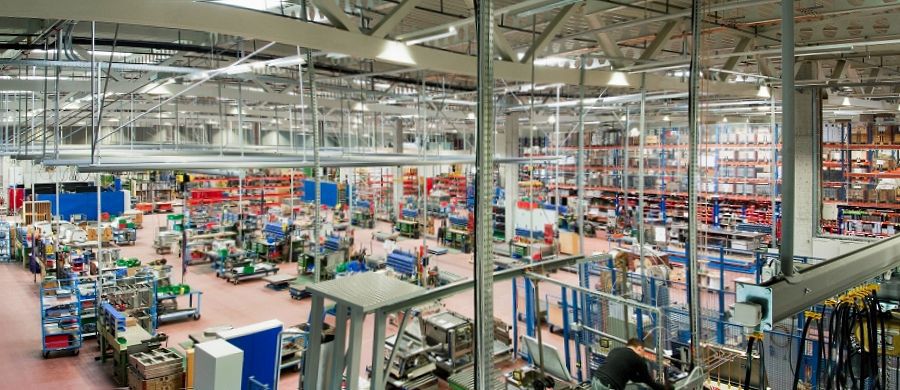HOW TO BOOST THE ECONOMY AFTER THE COVID 19 CRISIS ? |
|
The economy suffered heavily from the health crisis caused by the Covid-19 epidemic which highlighted its shortcomings In the short term, unemployment and, as Prime Minister Edouard Philippe said, "impoverishment" which is looming for a part of the population question the organization of working time and the fiscal choices of the quinquennium. The government must therefore find a balance between the need for a short-term recovery and the ambition to transform the French economy. Given the magnitude of the shock, some believe that the next economy will no longer be like the one before. And as of March 12, Emmanuel Macron had promised "breaking decisions". Tax more If Emmanuel Macron had abolished the wealth tax for the wealthiest at the start of his five-year term, hoping to see them finance the economy, the expenses incurred by the State to cushion the crisis revive the debate on a reinstatement of wealth tax (ISF), replaced in 2018 by the property wealth tax (IFI). He is demanded by the left and the National Rally. A sort of “war tax”, for the number one of the PCF Fabien Roussel. "Political power will find it difficult to escape it in one way or another", also judged the former social adviser of Nicolas Sarkozy, Raymond Soubie, referring more broadly to the taxation of capital. For Medef boss Geoffroy Roux de Bézieux, this would however be "a very bad signal".Directing the consequent savings of French people towards companies could also be considered Work more How to revive production after two months of confinement and with companies in a fragile financial situation? The bad numbers of job seekers have arrived, growth forecasts plunge (–6 points of GDP for the two months of containment) and the jobs crisis is looming so that the eternal debate has rebounded in favor of the coronavirus crisis. How then can we give work to the hundreds of thousands of people who will be unemployed by the crisis? On the right, the proposals are multiplying. Christian Jacob, the president of LR, pleads to “get out of the shackles of 35 hours”, and his party is working on a recovery plan, with in particular the contributions of the former Minister of Budget Eric Woerth. "We have to get out of the shackles of 35 hours (...) The question of working time will have to be asked in the context of social dialogue, but at the level of the company or in the branches, not of the State", he has Monday on France Inter. And he preaches on a case-by-case basis. “We can very well do this within the framework of the annualization of working time and to do it by company, as close as possible to reality, and in social negotiation between employees and the company manager. (...) This would allow employees to have an increase in wages and therefore purchasing power, and to restore competitiveness to businesses. (...) " "In some sectors, demand may be sustained, but health constraints cause productivity to drop: this is where the question of working more can arise," said Geoffroy Roux de Bézieux. He had previously mentioned a reduction in days off or holidays to "facilitate, by working a little more, the creation of additional growth". But longer working hours are not on the agenda for Laurent Berger. "If we think that we are going to get out of it positively by promising sweat and tears, we are in the mad," he said in the weekly La Vie. Rather than wanting to lengthen the duration of the working time, "we must learn to work differently and to work better", he argues, particularly worried about the situation of young people. The CGT also remains committed to 32 hours. For now, the government is focusing above all on a return to work. "The problem of the day is getting back to work and saving jobs," said Labor Minister Muriel Pénicaud. For her, companies already have room for maneuver negotiable with their employees, in particular the quota of 200 overtime hours without social security contributions, which is still very little used. In companies, unions and management can conclude "collective performance" agreements to renegotiate working time and compensation of employees in the event of difficulties, said Labor Minister Muriel Pénicaud. Green growth For environmentalists, the recovery plans are an opportunity to launch the transition to a low-carbon economy that we have struggled to initiate so far. Even the Minister of Economy Bruno Le Maire believes that France must become the “first low-carbon economy on the planet”, by investing in electric vehicles, the renovation of buildings… The Minister of Economy notably mentioned this Monday May 18, 2020, a new bonus for the purchase of a green vehicle. The recovery plan that he will present at the start of the school year and specific support for the automobile and aeronautics sectors could materialize this ambition, with environmental compensation claimed from industrialists. Besides, the State loan of 7 billion to Air France has been conditioned on an ecological commitment. “Air France must become the most environmentally friendly company on the planet. This is the condition to which I am most attached. ”, Bruno Le Maire said on April 24, 2020. But some economic circles are calling for a break in the application of new environmental rules, the time to overcome the crisis. Especially since the free fall in the price of fossil fuels - black gold has abandoned almost 70% and coal prices have been halved - could argue in this direction ... Relocate production Shortage of masks, of drugs: the epidemic has led the executive to want to defend greater economic independence in key sectors, such as health. "The next day will not be like the day before, we must rebuild our national and European sovereignty, "said President Emmanuel Macron. Bruno Le Maire thus asked car manufacturers to "relocate certain productions" in return for public support. Pharmaceutical companies are reflecting more than ever on the need to relocate production, in particular that of so-called "essential" drugs so as to no longer depend solely on China and India. Philippe Aghion, professor of economics at the Collège de France, pleads for the creation of a "European Darpa", inspired by the research funding agency of the American Pentagon, for a "real European investment policy, with a long term vision ”. "Not necessarily at 27", but at least with Germany, which has lost far fewer industrial jobs than France. But relocating factories to France could prove difficult, while competitiveness will remain essential for industries weakened by the crisis. "A relocation movement cannot start without thinking about our competitiveness and our production costs", warned the president of Medef on Twitter. The fact remains that this cannot be done without new investments, when the public authorities have already poured hundreds of billions of euros to save the European economic fabric during the confinement. |
|
| Jenny Chase for DayNewsWorld | |
 |
|




